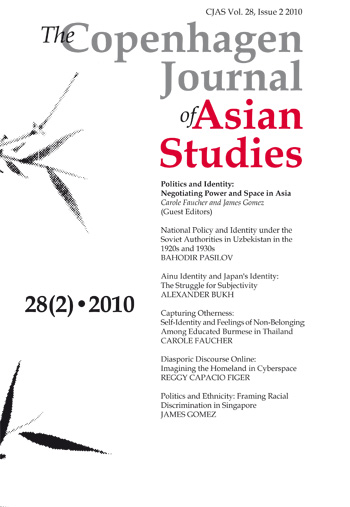Politics and Ethnicity: Framing Racial Discrimination in Singapore
DOI:
https://doi.org/10.22439/cjas.v28i2.3431Keywords:
ethnic identity, racial discrimination, public policy, Singapore, United NationsAbstract
Racial discrimination is a global phenomenon that the United Nations seeks to eradicate. In contemporary Singapore, research shows that the basis for racial discrimination is anchored in the role of ethnic identity and how it frames the formulation of policies related to education, employment, housing, immigration and politics. These policies have been formulated and implemented by the People's Action Party (PAP) government that has been in power for over 50 years. When confronted with its racially based policies, the PAP government insists that it follows a tolerant approach towards different races and that it promotes the idea of multiculturalism and meritocracy as a racial equalizer. However, ethnic minorities in Singapore complain they are being discriminated against daily on the basis of their race or religion. They argue that their views are often not given airing in the local mainstream media and they are further prevented from discussing these issues openly due to legislation restricting freedom of expression and assembly on these matters. Given this background, the first visit of a UN Rapporteur on racism to Singapore, at the invitation of the PAP government in April 2010, allowed the city-state's race-based policies to be put in an international spotlight. This study examines the visit of the UN Rapporteur, his initial findings, government and civil society responses, and the significance of this first UN mission. The paper locates its research on racial discrimination in the context of Singapore's political framework and the United Nations' efforts to eradicate racism. It argues that ultimately, policy changes in Singapore can only take place as a result of politically challenging the PAP government.Downloads
Published
2012-01-31
Issue
Section
Articles


